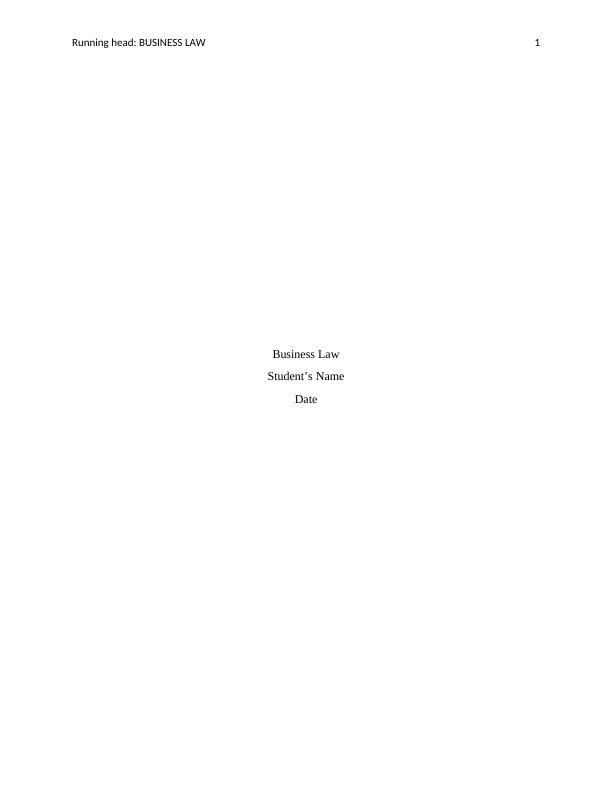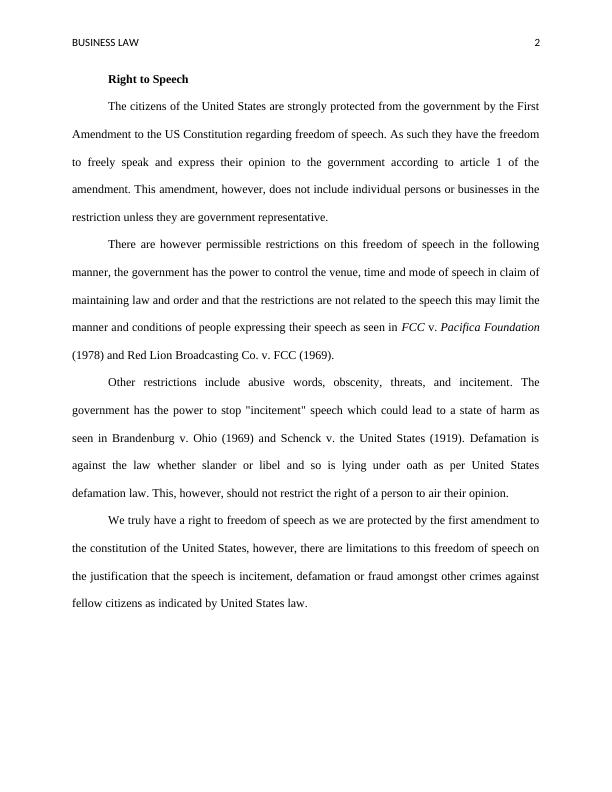Right to Speech
4 Pages642 Words86 Views
Added on 2023-03-17
About This Document
The citizens of the United States are strongly protected from the government by the First Amendment to the US Constitution regarding freedom of speech. This amendment, however, does not include individual persons or businesses in the restriction unless they are government representative. There are however permissible restrictions on this freedom of speech in the following manner, the government has the power to control the venue, time and mode of speech in claim of maintaining law and order and that the restrictions are not related to the speech this may limit the manner and conditions of people expressing their speech as seen in FCC v. Pacifica Foundation (1978) and Red Lion Broadcasting Co. v. FCC (1969). Other restrictions include abusive words, obscenity, threats, and incitement. The government has the power to stop 'incitement' speech which could lead to a state of harm as seen in Brandenburg v. Ohio (1969) and Schenck v. the United States (1919). Defamation is against the law whether slander or libel and so is lying under oath as per United States defamation law. This, however, should not restrict the right of a person to air their opinion. We truly have a right to freedom of speech as we are protected by the first amendment to the constitution of the United States, however, there are limitations to this freedom of speech on the justification that the speech is incitement, defamation or fraud amongst other crimes against fellow citizens as indicated by United States law.
Right to Speech
Added on 2023-03-17
ShareRelated Documents
End of preview
Want to access all the pages? Upload your documents or become a member.
The Death Penalty: Arguments for Abolishment by Justice Paul Stevens
|9
|1966
|137
Constitutional Rights and Legal Techniques
|8
|1422
|116
First Amendment & Censorship
|5
|631
|434
Business Law Assignment
|7
|1823
|92
Assignment on Business Law in PDF
|5
|806
|15


